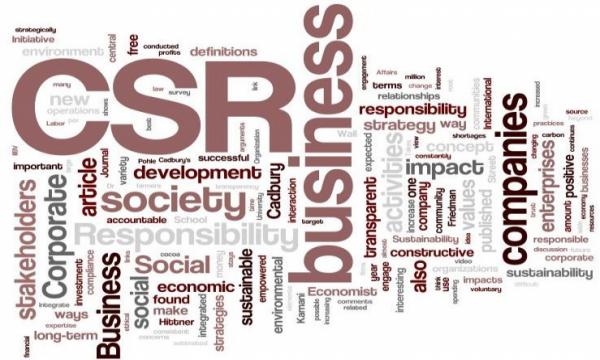From the classic Friedmanite doctrine of the 70s to present day, there is an evolving perspective on the role of business in society. Business’s sole responsibility, as Milton Friedman argued, is to return profit to its shareholders. This perspective as well as sometimes suspect corporate practices has left a legacy of mistrust towards the private sector. Corporate responsibility was considered an oxymoron, and in 2011 when representatives from the food & beverage industry were invited to participate the UN High Level Meeting on prevention and control of non-communicable disease, critics argued this was like letting “Dracula advise on blood bank security.”
This skepticism perhaps comes perhaps as no surprise. In addition to their product’s often negative effect on health, food and beverage companies have also had an adversarial relationship with the environment in which their products are sourced. Take the sourcing of palm oil, a common ingredient in thousands of consumer products from shampoo to french fries. Palm oil has traditionally been sourced from plantations built on cleared tropical forests and peatlands leading to devastating consequences in terms of biodiversity and climate change. This practice has recently prompted an advocacy group, the Union of Concerned Scientists, to issue a scorecard to rate companies on sustainability in the sourcing of palm oil.
While the scorecard leaders should of course be lauded for their efforts to mitigate their negative impact on the environment, I believe this may not be enough. It is stuck in a paradigm of corporate social responsibility, where negative impact is an assumed and implicit risk to business practices and, once mitigated, companies feel they can sleep soundly.
What if we re-imagine the role of business away from posing an assumed risk to health and the environment. What if companies explicitly serve social needs as core business interests. Enter shared value.
In 2011 in the Harvard Business Review, Michael Porter and Mark Kramer outlines the concept of shared value, “which involves creating economic value in a way that also creates value for society by addressing its needs and challenges,” they wrote. “Shared value is not social responsibility, philanthropy, or even sustainability, but a new way to achieve economic success. It is not on the margin of what companies do but at the center. We believe that it can give rise to the next major transformation of business thinking.”
While the scorecard leaders have made overtures towards environmental sustainability, there is perhaps a new model, embracing shared value, in which a company’s core business explicitly relies on the environment thus making environmental sustainability a core business interest. An example of this is the company Sambazon, an organic F&B company which sustainably sources açaí berries from the Brazilian rainforest.
Ryan Black, CEO of Sambazon, founded the company after realizing that farmers could harvest the açaí berry as a renewable resource and earn more money than they would with other environmentally destructive industries such as cattle farming and logging. Now, Sambazon supports the livelihoods of 10,000 farmers and sustainably manages over 2 million acres of rainforest.
Black has said that he views the “açaí berry as a vehicle to promote sustainable development in the Amazon by making the trees too valuable to cut down.”
He grew the company by tapping into green loan financing mechanisms such as Root Capital and EcoEnterprise Fund which invest specifically in triple bottom line businesses.
Derek Yach, Executive Director of the Vitality Institute, notes that this is an example of how market incentives are encouraging this new type of corporate practice.
“A big requirement is for major investors from long term pension funds–and more–to apply CSR [Creating Shared Value] ideas to their decisions.” He wrote.
Yach argues that the focus on Environmental, Social and Governance (ESG) issues by a number of new indices such as the Dow Jones Sustainability Index, the Global Reporting Initiative, the FTSE4Good index and the Johannesburg Stock Exchange Socially Responsible Investment index have shifted norms away from seeing financial results as the sole and most important means of judging long term corporate performance.
Today, the global development community is finally starting to warm up to the private sector. Public private partnerships were at the center of the Obama Administrations global development policy, and the private sector is considered to be an indispensable implementing partner of the post-2015 development agenda.
Perhaps the private sector will start to realize that shared value makes not only for good practice but also for good business.
This article was taken from here.
